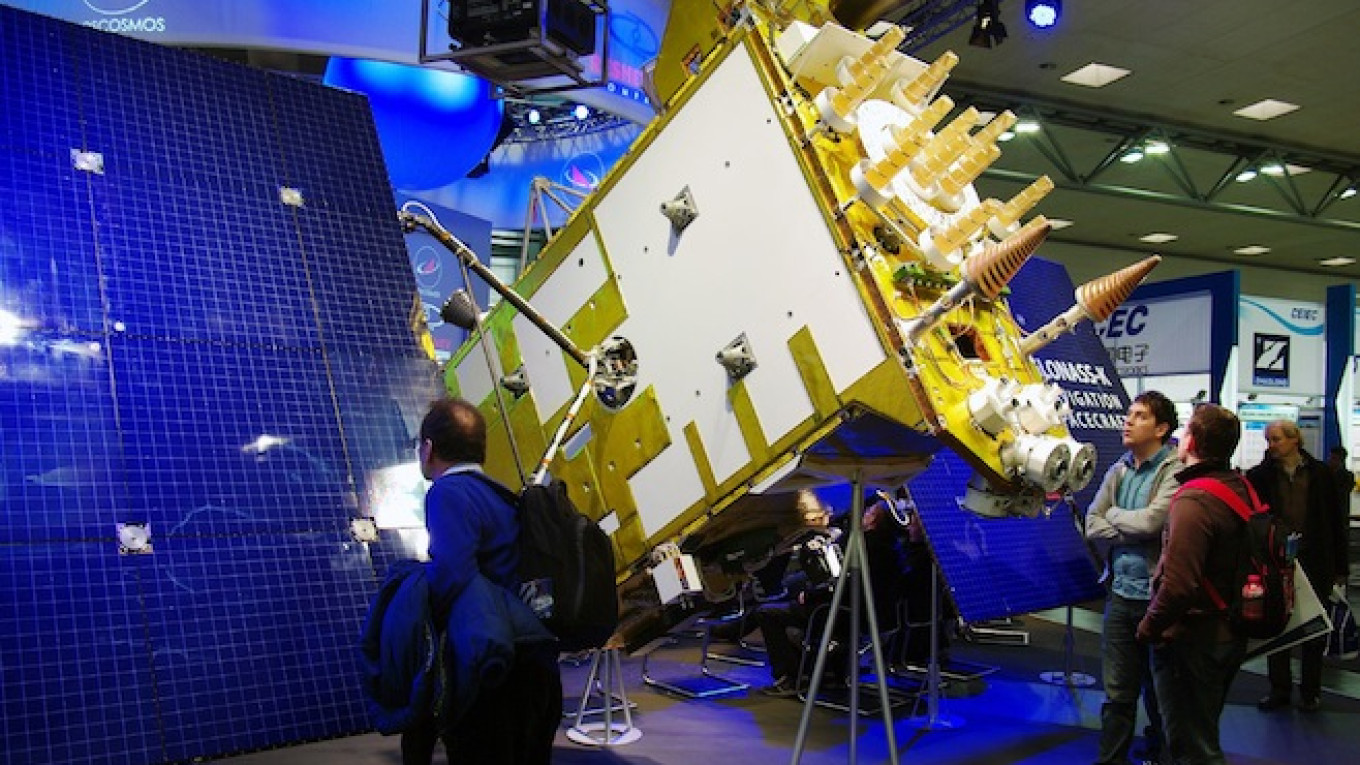Brazil has agreed to host a third monitoring station for Russia's Glonass satellite navigation system, which has been pitched as an alternative to the ubiquitous GPS network run by the U.S., news agency TASS reported Wednesday citing Russia's space agency.
The decision was announced at the end of the ninth meeting of a Russia-Brazil intergovernmental commission on scientific and technological cooperation. The two countries have been looking to boost space cooperation, with Glonass as a focal point.
“At the beginning of the fourth quarter of 2015, the construction of a third Glonass station in Brazil is planned to begin,” TASS quoted the press service of Russia's federal space agency, Roscosmos, as saying Wednesday.
Glonass is Russia's homegrown satellite navigation system, designed to provide Russia with its own navigation data for military and civilian use, as well as to compete with the U.S. Global Positioning System (GPS) in the commercial market for navigation data.
The competition between the two systems has taken on greater significance against the backdrop of the Ukraine crisis and the resulting tensions between Russia and the West.
Russia has been pushing to establish ground stations for Glonass around the world, which would increase the accuracy of the system's data, and announced last year that it wants anywhere from 36 to 50 ground stations on continents including North America.
However, the U.S. has resisted allowing Russia to install ground stations on its territory, fearing that they could be fronts for Russian electronic surveillance outposts. The dispute last year prompted Russia to deactivate GPS stations on Russian soil that were used for geographic research.
Russia has targeted Cuba and Brazil to host Glonass stations in the Western hemisphere. Stations have already been established in Brazil and Antarctica, but nowhere else.
A Message from The Moscow Times:
Dear readers,
We are facing unprecedented challenges. Russia's Prosecutor General's Office has designated The Moscow Times as an "undesirable" organization, criminalizing our work and putting our staff at risk of prosecution. This follows our earlier unjust labeling as a "foreign agent."
These actions are direct attempts to silence independent journalism in Russia. The authorities claim our work "discredits the decisions of the Russian leadership." We see things differently: we strive to provide accurate, unbiased reporting on Russia.
We, the journalists of The Moscow Times, refuse to be silenced. But to continue our work, we need your help.
Your support, no matter how small, makes a world of difference. If you can, please support us monthly starting from just $2. It's quick to set up, and every contribution makes a significant impact.
By supporting The Moscow Times, you're defending open, independent journalism in the face of repression. Thank you for standing with us.
Remind me later.


